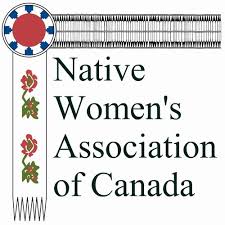(February 17, 2016) ― The Native Women’s Association of Canada (NWAC), the Canadian Feminist Alliance for International Action (FAFIA), and the Canadian Journal of Women and the Law (CJWL) hosted an historic Symposium to discuss the design of the national inquiry into murders and disappearances of Indigenous women and girls on January 30 and 31, 2016 in Ottawa.
This two-day Symposium (titled Murders and Disappearances of Indigenous Women and Girls: Planning for Change – Towards a National Inquiry and an Effective National Action Plan) brought together international human rights experts from the United Nations and the Inter‑American Commission on Human Rights, the White House Advisor on violence against women, Indigenous women leaders, family members, and grassroots feminist activists from across Canada.
From the Symposium’s deliberations emerged 22 recommendations regarding the design of the long-awaited national inquiry – each of which is imperative in order to ensure a fulsome, pragmatic, objective, and ultimately, successful outcome for this national inquiry.
The 22 inquiry recommendations set out the need for:
- a clear focus on gendered and racialized violence against Indigenous women and girls;
- the critical importance of addressing the harms to family members caused by the violence and of supporting family members through redress, healing, ceremony, memorialization, and compensation;
- clarifying at the outset that the inquiry is national in scope and will include scrutiny of conduct and policies in federal, provincial and territorial jurisdictions;
- including examination of 1) failures in policing and the justice system and 2) the underlying social and economic inequality of Indigenous women and girls that permits and perpetuates the violence.
- Establishing a human rights framework for the inquiry, that will ensure that recommendations already made by the United Nations and the Inter‑American Commission are implemented, and that proposed solutions are measured against human rights standards.
Dawn Lavell-Harvard, President of the Native Women’s Association of Canada said: “Gendered, sexualized and racialized violence against Indigenous women and girls violates our commitments to equality and causes lasting inter-generational harm to families, communities. These 22 recommendations establish the measures necessary to address this crisis effectively and to begin to reverse the cycle of violence.”
ACCESS FULL SYMPOSIUM OUTCOME DOCUMENT WITH 22 RECOMMENDATIONS HERE
“The Western patriarchal paradigm paints Indigenous women as vulnerable; unworthy of value or respect. We know better,” added Lavell-Harvard. “We know that we as lifegivers are strong, resilient, and capable of great things. This document is proof of that. It’s time to move forward – out of the darkness and into the light. The road ahead will be grueling, but it is nothing we can’t handle if we remain focused and committed to our overarching purpose: bringing justice to our women and girls.”
“It is essential that the national inquiry have a human rights framework,” explained Shelagh Day, Chair, Human Rights Committee, Canadian Feminist Alliance for International Action (FAFIA). “Canada needs to implement, and then build on, the recommendations from the United Nations Committee on the Elimination of Discrimination against Women (CEDAW) and the Inter‑American Commission on Human Rights. We need to ensure that the national plan that emerges from the inquiry will move us towards fulfilling the rights of Indigenous women and girls and meet the obligations of Canadian governments.”
“The Symposium identified the crux of this issue – that equality will never be achieved until gendered, racialized and sexualized violence against Indigenous women and girls as perpetrated by both Indigenous and non-Indigenous men, and by representatives of the state, is stopped,” concluded Angela Cameron, Associate Professor, Faculty of Law at University of Ottawa and board member for the Feminist Alliance for International Action (FAFIA). “That requires action by all levels of government in Canada.





Be the first to comment on "Symposium releases 22 recommendations for the inquiry into murdered and missing women"